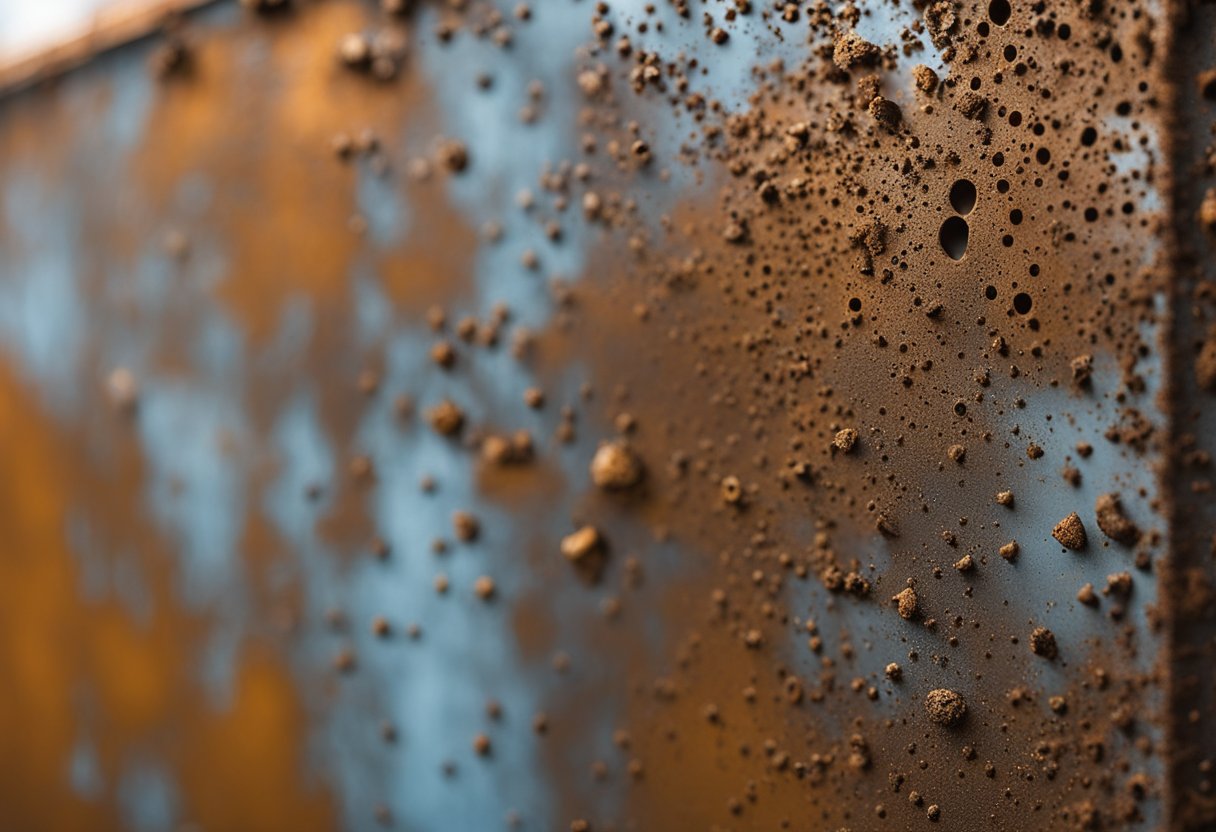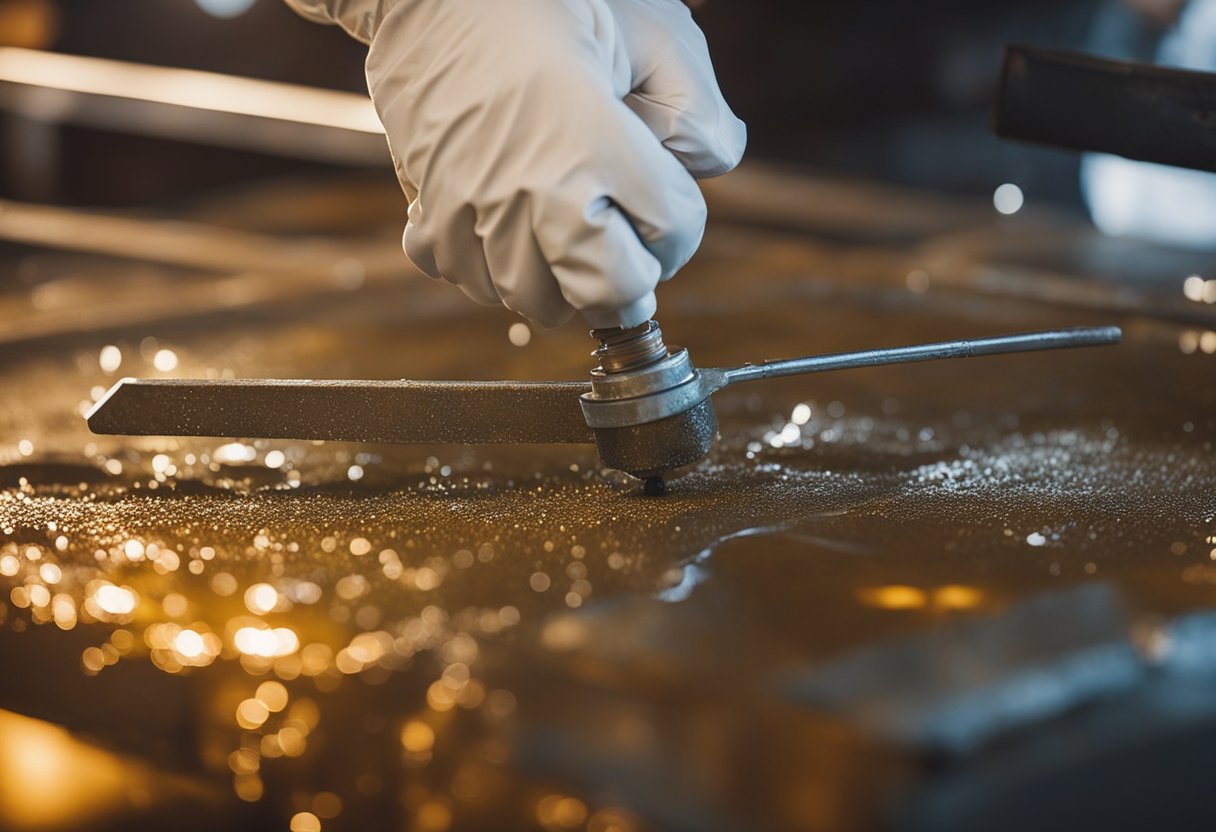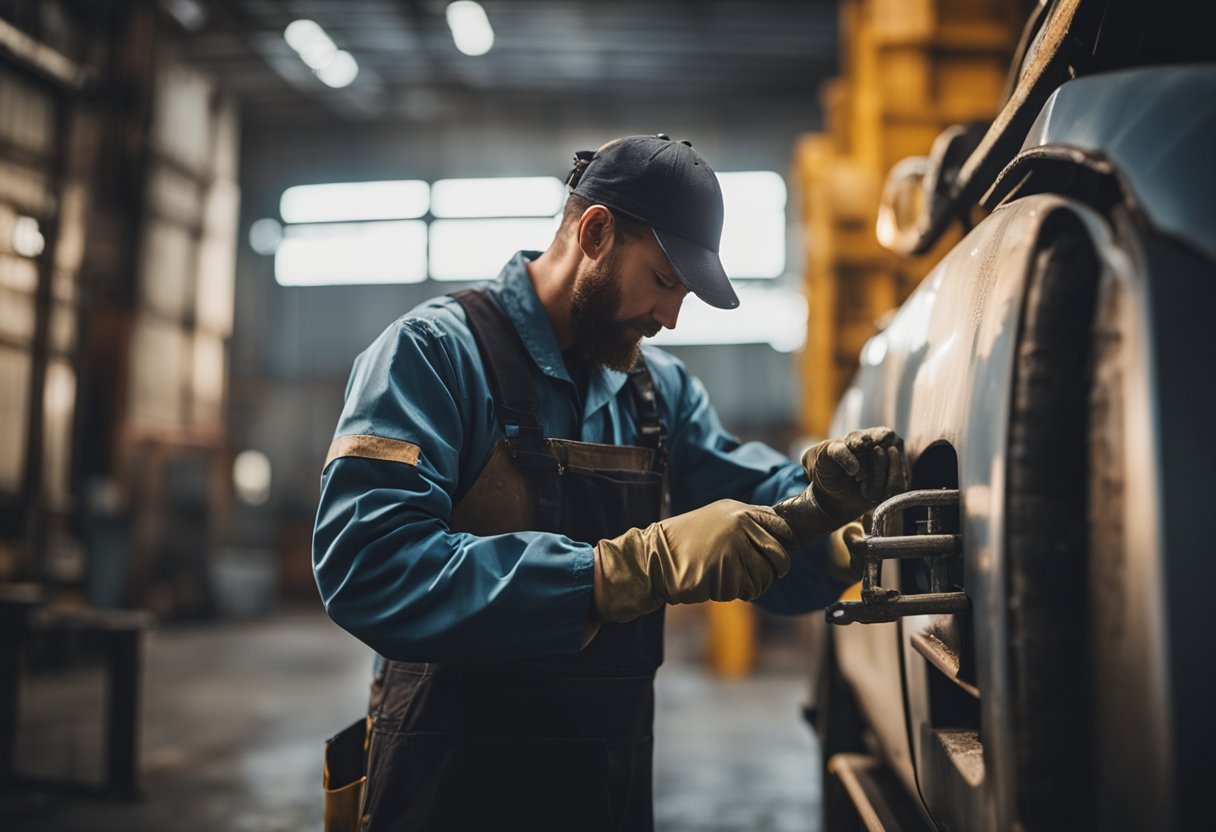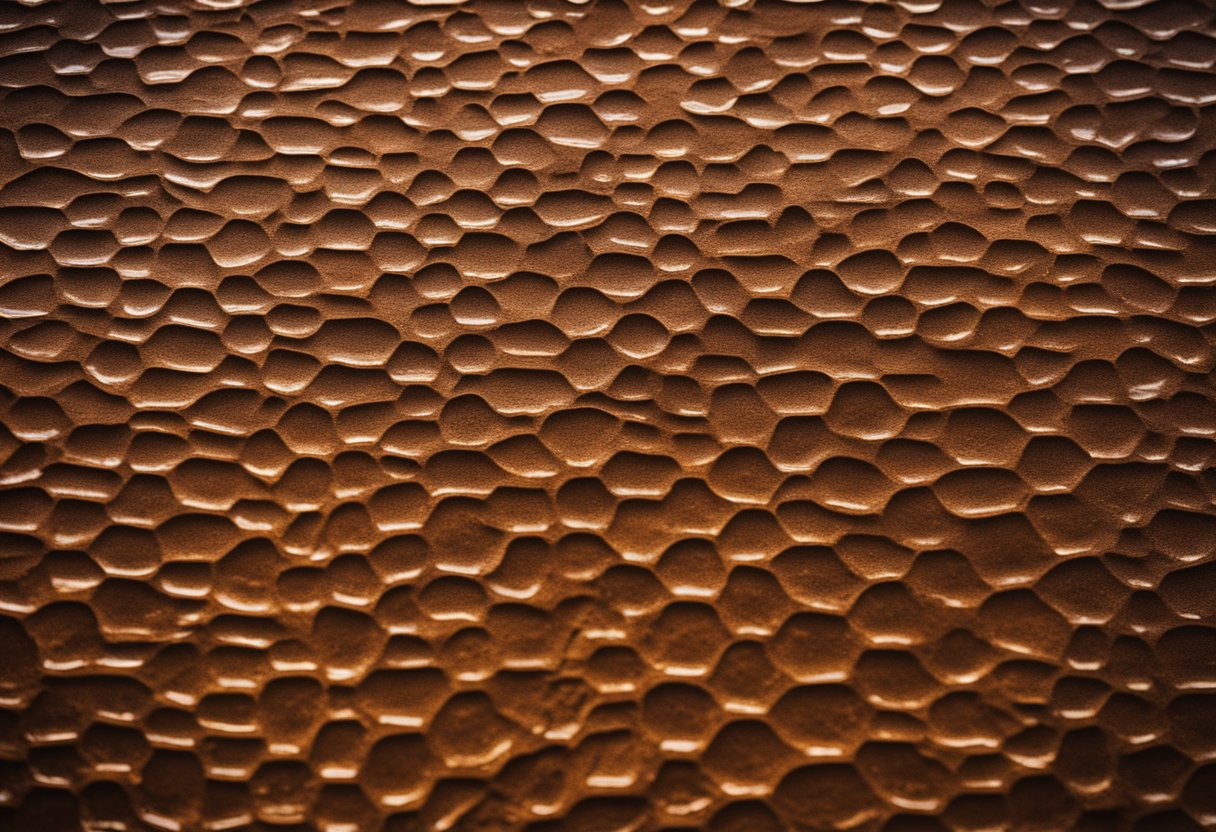Epoxy primer over rust is a common solution for preventing rust from spreading and protecting metal surfaces from corrosion. Epoxy primers are known for their excellent adhesion, durability, and resistance to moisture, chemicals, and UV radiation, making them a popular choice for automotive, industrial, and marine applications. However, not all epoxy primers are suitable for use over rust, and proper surface preparation is crucial to ensure a successful application.
Understanding Epoxy Primer and Rust
Epoxy primer is a type of two-part coating that consists of a resin and a hardener. When mixed together, the resin and hardener chemically react to form a tough, protective film that adheres strongly to the substrate. Epoxy primers are designed to be applied directly to bare metal or properly prepared surfaces, such as sanded or blasted steel, aluminum, or fiberglass. Rust, on the other hand, is a form of corrosion that occurs when iron or steel reacts with oxygen and moisture in the air. Rust can weaken the metal and cause it to flake, peel, or crack over time if left untreated.
Preparation of Metal Surfaces
Before applying epoxy primer over rust, it is essential to remove as much of the rust as possible and prepare the metal surface properly. This may involve sandblasting, grinding, wire brushing, or using a rust converter to chemically convert the rust into a stable surface that can be painted over. The surface must be clean, dry, and free of oil, grease, dirt, or other contaminants that can interfere with adhesion. Applying epoxy primer over rust without proper preparation can result in adhesion failure, bubbling, or rust bleeding through the primer.
Key Takeaways
- Epoxy primer over rust is a common solution for preventing rust from spreading and protecting metal surfaces from corrosion.
- Proper surface preparation is crucial to ensure a successful application of epoxy primer over rust.
- Epoxy primers are known for their excellent adhesion, durability, and resistance to moisture, chemicals, and UV radiation.
Understanding Epoxy Primer and Rust
https://www.youtube.com/watch?v=g6XMTbKFLWU&embed=true
As someone who has worked with metals, I understand the frustration that comes with rust formation on metal surfaces. Rust is a form of corrosion that occurs when oxygen and moisture come into contact with metals. It weakens the metal, causing it to crumble and flake away. Fortunately, there are ways to prevent rust formation and protect metal surfaces. One of the most effective ways is by using epoxy primer.
Epoxy primer is a type of primer that is used to seal and protect metal surfaces. It is made up of two parts: resin and hardener. When these two parts are mixed together, they form a hard, durable coating that is resistant to moisture and corrosion. Epoxy primer is excellent at sealing up exposed metal and preventing rust or moisture infiltration.
One of the most significant advantages of using epoxy primer is that it can be applied directly over surface rust. Surface rust is a type of rust that forms on the surface of the metal and can be removed with a rust remover or a wire brush. However, it is essential to note that epoxy primer should not be applied over heavy rust or corrosion. In such cases, it is best to use a rust converter or rust encapsulator before applying the epoxy primer.
Epoxy primer is also an excellent adhesive, which means that it helps the paint adhere to the metal surface better. It is essential to prepare the metal surface correctly before applying the epoxy primer. The surface should be clean and free of rust, oil, grease, and other contaminants. If the surface is not adequately prepared, the epoxy primer may not adhere correctly, leading to paint failure and rust formation.
In conclusion, epoxy primer is an effective way to protect metal surfaces from rust and corrosion. It is essential to prepare the metal surface correctly and apply the epoxy primer as per the manufacturer’s instructions. By doing so, you can ensure that your metal surfaces remain protected and rust-free for years to come.
Preparation of Metal Surfaces
https://www.youtube.com/watch?v=97sAGP7Ca_w&embed=true
To achieve maximum adhesion and corrosion protection, proper preparation of metal surfaces is essential before applying epoxy primer over rust. The surface must be free of any contaminants, rust, oils, or other debris that may interfere with the adhesion of the primer.
First, remove any loose rust, paint, or debris from the metal surface using a wire brush or grinder. If the surface rust is minimal, then sanding may be sufficient. However, if the rust is extensive, then a rust converter may be necessary to neutralize the rust and prevent further corrosion.
After removing the rust, thoroughly clean the metal surface with acetone or a similar solvent to remove any remaining oils or contaminants. This step is critical to ensure proper adhesion of the epoxy primer.
For bare metal surfaces, it is recommended to use a metal prep solution to etch the surface and promote adhesion. The metal prep solution converts the surface of the metal to a more receptive surface for the primer.
It is important to note that different types of metal require different surface preparation techniques. For example, aluminum requires a different cleaning process compared to steel. Therefore, it is crucial to follow the manufacturer’s recommendations for the specific type of metal being primed.
In summary, proper surface preparation is crucial to achieve maximum adhesion and corrosion protection when applying epoxy primer over rust. The surface must be free of any contaminants, rust, oils, or other debris that may interfere with the adhesion of the primer. Using the correct surface preparation techniques for the specific type of metal being primed will ensure the best possible results.
Application of Epoxy Primer Over Rust
https://www.youtube.com/watch?v=dY8ecJbE1pQ&embed=true
When it comes to painting over rust, epoxy primer is an excellent choice to prevent further corrosion. Epoxy primer is a non-porous, protective coating that can adhere well to rust. Here are some key factors to consider when applying epoxy primer over rust.
Surface Preparation
Surface preparation is crucial for the adhesion of epoxy primer over rust. The rust should be removed as much as possible by sandblasting or grinding to achieve a clean and smooth surface. Any oil, grease, or other contaminants should also be removed before applying the primer.
Applying the Primer
Before applying the primer, make sure the surface is dry and free from any debris. The primer can be applied either by spray or brush. It is recommended to apply two coats of epoxy primer to ensure proper adhesion and film thickness. Allow the primer to dry for the recommended drying time before applying the top coat.
Top Coat
After the epoxy primer has dried, a top coat can be applied. The top coat should be compatible with the epoxy primer and should be applied in accordance with the manufacturer’s instructions. The top coat can be applied either by spray or brush.
Recommended Brands
There are several brands of epoxy primer available in the market. SPI epoxy and POR 15 are some of the popular brands that can be used for painting over rust. It is recommended to use a 2K primer and a quart can of epoxy primer for better results.
Overall, epoxy primer is an excellent choice for painting over rust. It provides a protective coating that can adhere well to rust and prevent further corrosion. Proper surface preparation, application, and top coating are essential for achieving the best results.
Benefits and Drawbacks
https://www.youtube.com/watch?v=EXJgCyShOCw&embed=true
Epoxy primer over rust has become a popular method of preventing rust and corrosion on metal surfaces. As someone who has worked with epoxy primer extensively, I can attest to its durability and strength. Here are some benefits and drawbacks of using epoxy primer over rust.
Benefits
Adhesion
Epoxy primer has strong adhesion properties, which makes it an ideal choice for use on metal surfaces. The primer adheres well to the metal surface, creating a strong bond that is difficult to break. This strong adhesion property ensures that the primer stays in place, preventing rust and corrosion from forming on the metal surface.
Durability
Epoxy primer is highly durable, making it an ideal choice for use in harsh environments. The primer can withstand exposure to chemicals, water, and UV radiation, making it an excellent choice for use in marine and industrial applications.
Prevents Blistering
Epoxy primer acts as a barrier, preventing moisture from penetrating the metal surface. This barrier prevents blistering, which is a common problem that occurs when moisture gets trapped between the metal surface and the primer.
Drawbacks
Application Process
One of the drawbacks of using epoxy primer over rust is the application process. It is essential to prepare the metal surface properly before applying the primer. Any rust or corrosion must be removed, and the surface must be cleaned thoroughly. Failure to do so can result in the primer not adhering correctly to the metal surface.
Cost
Epoxy primer can be more expensive than other types of primer. However, the cost is worth it, considering the benefits that it provides.
In conclusion, epoxy primer over rust is an excellent choice for preventing rust and corrosion on metal surfaces. While it may have some drawbacks, the benefits far outweigh them. Its strong adhesion and durability make it a reliable choice for use in harsh environments.
Alternative Solutions for Rust Treatment
https://www.youtube.com/watch?v=vpC_tJv0ymk&embed=true
While epoxy primer is a great solution for treating rust, there are other options available to those who may prefer a different approach. Here are some alternative solutions for rust treatment:
Rust Converter
Rust converters are chemicals that react with rust to convert it into a stable compound that can be painted over. They are easy to use and can be applied directly to the rusted surface without the need for sandblasting or grinding. Rust converters are a good option for those who want to quickly and easily treat rust without having to spend a lot of time and effort on preparation.
Rust Remover
Rust removers are chemicals that dissolve rust and remove it from the surface of the metal. They are a good option for those who want to completely remove rust from a surface before applying a primer or paint. Rust removers are easy to use and can be applied with a brush or spray bottle. However, they can be harsh and may damage the metal if left on for too long.
Rust Encapsulator
Rust encapsulators are coatings that form a protective barrier over rusted surfaces. They are a good option for those who want to prevent further rusting and protect the metal from the elements. Rust encapsulators can be applied directly to the rusted surface without the need for sandblasting or grinding. They are easy to use and can be painted over once they have dried.
Treat Rust
It is important to treat rust as soon as it is detected to prevent it from spreading and causing further damage. Whether you choose to use epoxy primer, rust converter, rust remover, or rust encapsulator, it is important to follow the manufacturer’s instructions carefully and take the necessary safety precautions. With the right treatment, you can restore your metal surfaces and protect them from future damage.
Considerations for Different Materials
When it comes to using epoxy primer over rust, it’s important to consider the material you’re working with. Different materials may require different preparation and application methods. Here are some things to keep in mind:
Paints
Epoxy primer can be used under a variety of paints, including oil-based and latex paints. However, it’s important to note that the surface must be completely clean and free of any contaminants before applying the epoxy primer. Any contamination left on the surface can cause the paint to fail.
Wood
Epoxy primer can be used on wood, but it’s important to note that it will not waterproof the wood. If you’re looking for a waterproof solution, you’ll need to use a different product. However, epoxy primer can be used to seal the wood and prevent any further rust from forming.
Plastic
Epoxy primer can be used on plastic, but it’s important to note that it may not adhere as well as it does to other materials. If you’re using epoxy primer on plastic, it’s important to thoroughly clean the surface and use a plastic adhesion promoter before applying the primer.
Universal
Epoxy primer is a versatile product that can be used on a variety of materials, including metal, fiberglass, and plastic. However, it’s important to note that the preparation and application methods may vary depending on the material.
Flexible
Epoxy primer is not recommended for use on flexible materials, as it can crack and peel when the material flexes. If you need to use a primer on a flexible material, it’s best to use a product specifically designed for that purpose.
In summary, when using epoxy primer over rust, it’s important to consider the material you’re working with and follow the appropriate preparation and application methods. Always make sure the surface is completely clean and free of any contaminants before applying the epoxy primer, and choose a product that is appropriate for the material you’re working with.
Storage and Maintenance Tips
As someone who has worked with epoxy primer over rust for a while, I have learned that proper storage and maintenance can make all the difference in achieving a successful outcome. Here are some tips to help you get the best results:
Humidity
Humidity can affect the quality of epoxy primer over rust. It is important to store the primer in a dry environment to prevent moisture from getting into the container. If the primer is exposed to humidity, it can cause the primer to harden or cure in the container, rendering it unusable.
Storage
Proper storage of epoxy primer over rust is crucial. Store the primer in a cool, dry place, away from direct sunlight and heat sources. It is also important to keep the container tightly sealed when not in use. This will help prevent moisture and air from getting into the container and affecting the quality of the primer.
Repainting
If you need to repaint an area that has already been coated with epoxy primer over rust, it is important to remove any contaminants that may have accumulated on the surface. Use a lacquer thinner or a water-based compound to clean the surface thoroughly. This will ensure that the new coat of primer adheres properly to the surface.
Patch
If you need to patch an area that has already been coated with epoxy primer over rust, it is important to ensure that the new patch is completely dry before applying the primer. Any moisture in the patch can cause the primer to cure improperly, resulting in a subpar finish.
Contaminants
Contaminants such as oil-based paint, stains, and other substances can affect the quality of epoxy primer over rust. It is important to remove any contaminants from the surface before applying the primer. Use a lacquer thinner or a water-based compound to clean the surface thoroughly.
By following these storage and maintenance tips, you can ensure that your epoxy primer over rust will provide a long-lasting and durable finish.
Frequently Asked Questions
What is the best primer for painting over rust?
When it comes to painting over rust, epoxy primer is the best option. It is a two-part primer that creates a hard, durable surface that can withstand harsh elements. Epoxy primer is specifically designed to bond with metal and prevent rust from forming.
Is epoxy paint good for rust?
Epoxy paint is a great option for protecting metal surfaces from rust. It is a durable, long-lasting coating that can withstand harsh weather conditions. However, epoxy paint is not recommended for use on surfaces that are already rusted. In this case, it is best to use an epoxy primer before applying the paint.
What primer to use over rust converter?
If you have already used a rust converter on your metal surface, you can use an epoxy primer over it. The primer will provide an additional layer of protection against rust and ensure that the surface is ready for painting.
Can epoxy primer be applied over rust pits?
Yes, epoxy primer can be applied over rust pits. However, it is important to clean the surface thoroughly before applying the primer. Any rust or contaminants left on the surface can compromise the adhesion of the primer.
How does epoxy primer protect against rust?
Epoxy primer creates a hard, durable surface that is resistant to moisture and other elements that can cause rust. It also contains corrosion inhibitors that prevent rust from forming. When applied correctly, epoxy primer can provide long-lasting protection against rust.
What is the difference between rust conversion paint and epoxy primer?
Rust conversion paint is a type of paint that chemically converts rust into a stable compound that can be painted over. It is designed specifically for surfaces that are already rusted. Epoxy primer, on the other hand, is a two-part primer that is designed to bond with metal and prevent rust from forming. It is best used on clean, bare metal surfaces.

Hi, I’m Sal Muller of Tooltrip.com. My DIY experience led me to understand essential power tools for home projects. Tooltrip.com guides enthusiasts and professionals in choosing right tools for any job. I provide concise top tool reviews for easier, efficient DIY.





